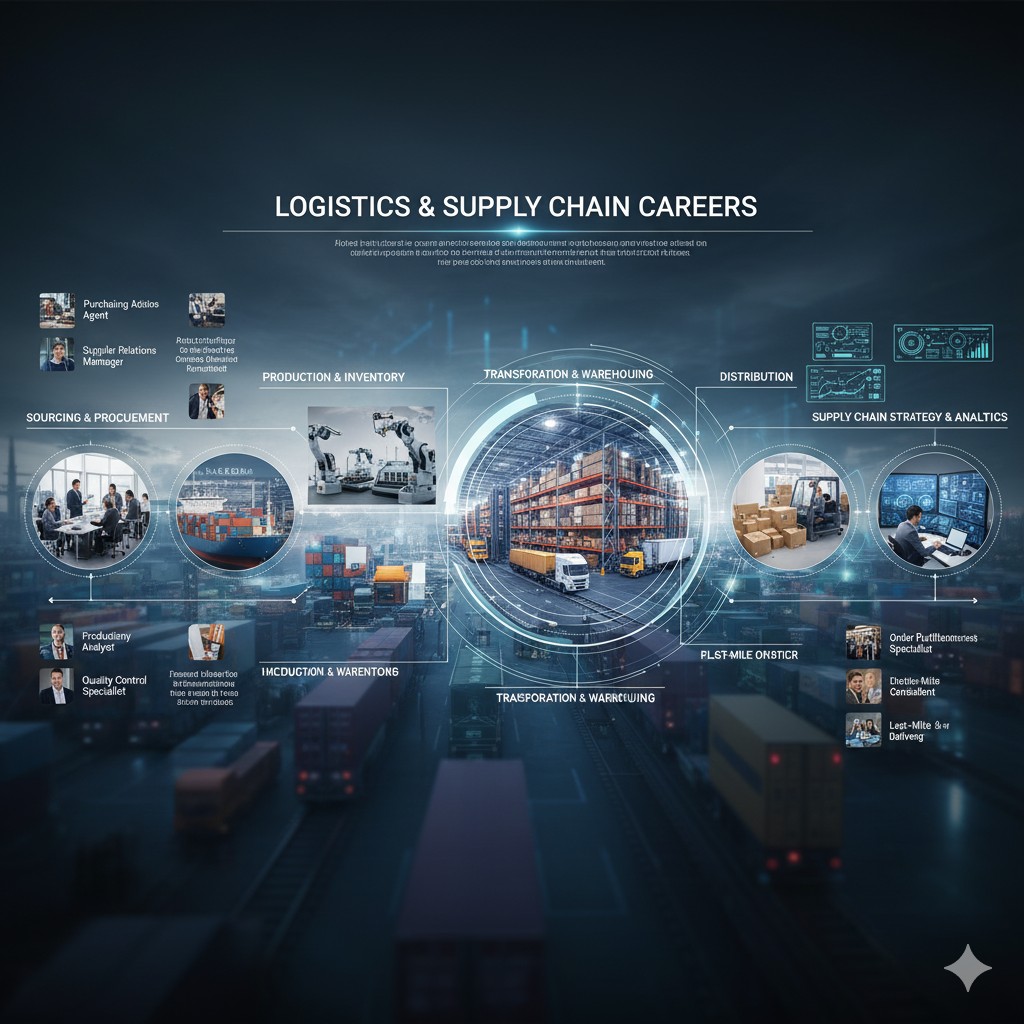The Supply Chain Journey
A product's journey from concept to customer is complex. The supply chain is the engine that makes it all happen. Click on any stage below to explore the critical roles that power our global economy and see a detailed breakdown in the "Deep Dive" section.

Planning & Procurement
Forecasting demand and sourcing materials.
Manufacturing & Production
Assembling and creating the final product.
Warehousing & Inventory
Storing goods and managing stock levels.
Transportation
Moving products between locations.
Last-Mile & Customer Service
Final delivery and ensuring satisfaction.
Role Deep Dive
Here you can explore specific roles. Use the dropdown to select a job, or choose a stage from "The Journey" tab to filter the list. Each role has unique responsibilities, required skills, and salary expectations.
Select a Role
Details about the selected role will appear here.
Key Responsibilities
- Responsibility details...
Typical Qualifications
- Qualification details...
Average Annual Salary (USD)
Essential Skill Profile
Career Progression
A career in logistics and supply chain offers significant growth opportunities. Below is a typical progression path, moving from entry-level analytical or operational roles to senior strategic leadership positions.
Entry-Level Roles
0-3 Years Experience
Focus on specific tasks and processes. Roles like Logistics Coordinator, Supply Chain Analyst, or Junior Buyer are common starting points. You'll learn the fundamentals of operations, data analysis, and vendor communication.
Mid-Level / Management Roles
3-10 Years Experience
Transition to overseeing teams, projects, or entire functional areas. Examples include Warehouse Manager, Procurement Manager, and Demand Planner. Responsibilities shift towards strategy, process improvement, and team leadership.
Senior & Executive Roles
10+ Years Experience
Drive the overall strategy for the entire supply chain. Titles like Director of Logistics, Vice President of Supply Chain, or Chief Supply Chain Officer (CSCO) are common. This level requires a deep understanding of global markets, technology, and business finance.
Enhance Your Career with Certifications
Professional certifications demonstrate expertise and a commitment to the field. They can significantly boost your career prospects and earning potential. Here are some of the most respected certifications in the industry.
APICS: CSCP
Certified Supply Chain Professional
A globally recognized certification that covers the end-to-end supply chain, from suppliers to customers. Ideal for professionals seeking to understand and manage complex global supply chains.
APICS: CLTD
Certified in Logistics, Transportation and Distribution
Focuses on the operational side of the supply chain. This certification is perfect for those managing warehousing, transportation networks, and distribution channels.
CSCMP: SCPro™
Supply Chain Pro Certification
A multi-tiered program covering eight key supply chain disciplines. It's designed to be a comprehensive certification that validates knowledge across the entire field.